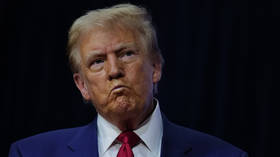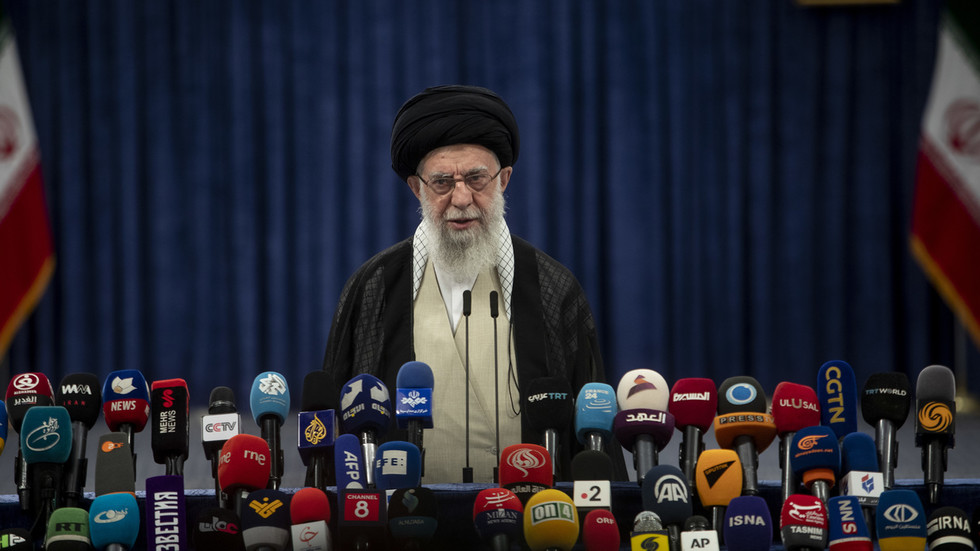American inconsistency and Israeli aggression have sealed Tehran’s strategic pivot. No more trust. No more talk.
By Farhad Ibragimov – lecturer at the Faculty of Economics at RUDN University, visiting lecturer at the Institute of Social Sciences of the Russian Presidential Academy of National Economy and Public Administration
The “twelve-day war” between Iran and Israel marked a turning point – not just for Iran, but for the entire region. America’s involvement in the conflict shattered any remaining hopes for de-escalation through diplomacy. For Tehran, foreign policy is now split into a “before” and “after.” And in this new “after,” there’s no trust left – especially in Donald Trump.
Before the war, some Iranian politicians and analysts still held out hope for a gradual thaw with the West. That hope evaporated when Washington showed it could swing between gestures of peace and military threats within days. Even the more moderate voices in Tehran now see Trump as unreliable, though they haven’t ruled out talks with the West altogether in the long run.
Trump’s recent statements about easing sanctions in exchange for “peaceful dialogue” are widely seen in Iran as hollow. In late June, the mixed signals from Washington only deepened mistrust. On June 26, Fox News reported that the US was backing a $30 billion aid plan for Iran’s civilian nuclear program – excluding uranium enrichment. But the next day, Trump dismissed the report as a “myth” and hinted at more strikes on Iran’s nuclear facilities. Then, on June 29, he reversed course again, saying sanctions might be lifted if Iran displayed “peaceful behavior.”
This pattern is familiar. On June 12, Trump urged Israel not to attack Iran. Days later, he backed Israeli strikes. Tehran sees these shifts not as diplomacy, but as manipulation.
In response, Iran’s leadership is trying to present a united front. But deep divisions remain – especially around the nuclear issue. Still, the focus now is on strengthening internal resilience: shoring up the economy, modernizing the military, and preparing for what many believe is an inevitable next round of confrontation.
Crucially, the Iranian public has not panicked. Western analysts misjudged the national mood. Iran’s long memory, its 3,000-year-old identity, and deep-rooted patriotism have created a kind of collective immunity to outside pressure. The Islamic Republic isn’t just a regime – it’s seen by many as a vessel for preserving national sovereignty.
What truly shocked Iran’s leadership during the recent war was the open threat against Supreme Leader Ayatollah Khamenei. For Tehran, that wasn’t just rhetoric – it was a real warning. Many believe a future attempt on his life is only a matter of time.
That threat has accelerated Tehran’s push to mobilize. Iran now sees a short window to build up defenses, invest in the economy, and prepare for tougher times. Washington keeps urging Tehran to abandon its nuclear ambitions, but US officials know full well: Iran has the resources, infrastructure, and scientific expertise to revive its program quickly – and likely will.
The conflict with Israel left scars too deep for quick reconciliation. The US joining the military phase of the war made matters worse. Any Western claims that Iran might still make concessions now sound out of touch with the mood in Tehran.
As for the so-called ceasefire, few in Iran or Israel believe it will last. Despite public claims of victory, both sides view the pause as temporary. But Iran, more than Israel, seems deeply dissatisfied – making meaningful talks highly unlikely.
Meanwhile, one of the most sensitive topics inside Iran is succession. Khamenei is 86. Officially, things appear stable, but behind closed doors, the question of who comes next is growing urgent.

Despite Western portrayals, Khamenei remains a unifying figure. He’s earned the respect of conservatives, the military, the clergy, and much of the bureaucracy. For decades, he’s managed to keep Iran’s competing power centers – like the IRGC, the Guardian Council, and the parliament – in balance. That’s no small feat.
But that balance is under strain. The IRGC and parliament increasingly blame the government for being weak and indecisive. In turn, technocratic factions say the IRGC is too ideological. In this environment, Khamenei has become more than a religious leader – he’s the last glue holding the system together.
Whoever follows him will face a near-impossible task: uniting the elites, avoiding fragmentation, and maintaining control in a moment of deep uncertainty.
At the same time, divisions over the nuclear program are getting worse. Hardliners, especially those tied to the IRGC, now openly argue that Iran not only can, but should pursue nuclear weapons – as a guarantee of survival. On the other hand, some former diplomats and foreign policy officials are still pushing diplomacy. They believe Iran can stay strong while reopening parts of the economy.
But time is short. Between leadership transition, external pressure, and growing elite tensions, Iran is entering a critical phase. The next supreme leader will need not just formal credentials, but real charisma and political weight to keep the country together.
The war in June changed everything. From now on, Iran’s foreign policy will be guided not by trust or compromise – but by distrust, resilience, and strategic defense. Every gesture from Washington will be judged through the lens of that conflict. The door to diplomacy hasn’t just closed. It’s been locked – and the key thrown away.
Read the full article here
